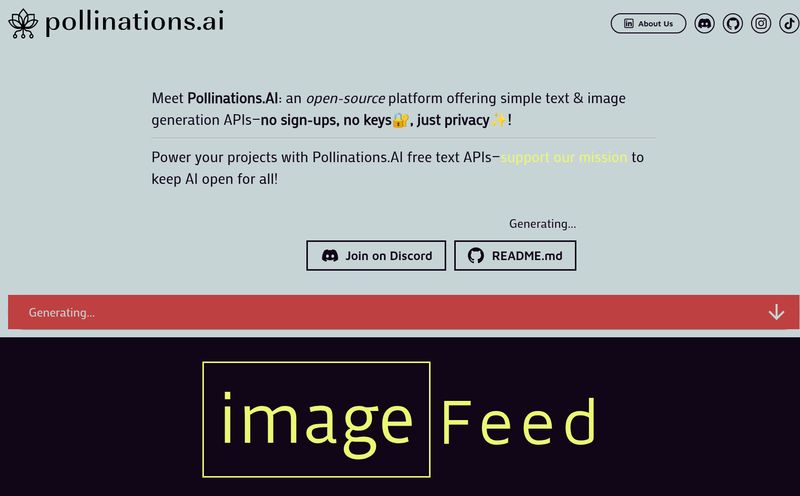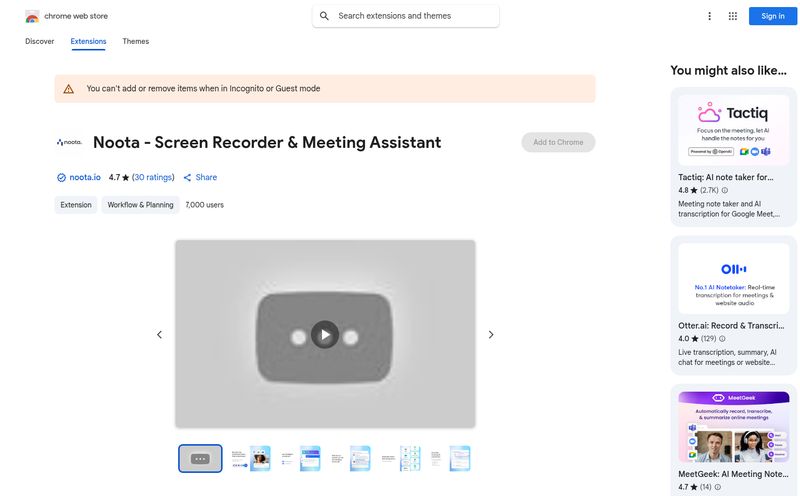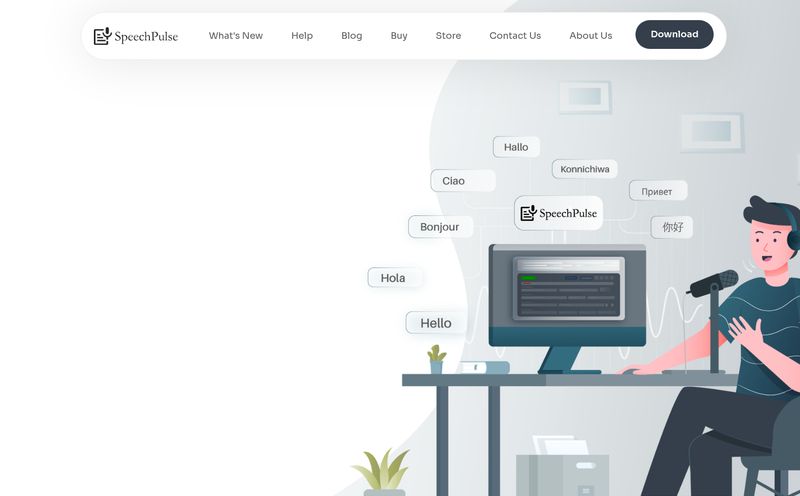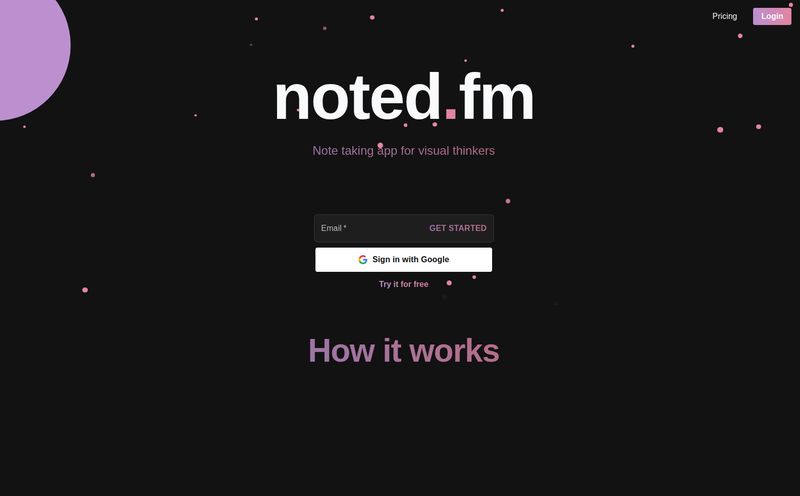We're all drowning in a sea of tools promising to make us more organized, more efficient, more… something. So when I first heard about Audio Note, I was skeptical. A voice-to-text app with AI rewriting? Sounds neat, but is it just another shiny object destined to be forgotten after a week?
Well, I’ve been playing with it for a while now, and I have some thoughts. For anyone who thinks faster than they can type, or whose best ideas strike while they’re driving, washing dishes, or walking the dog—this might actually be something worth paying attention to. It’s not just about capturing your thoughts; it’s about what it does with them after.
So, What Exactly Is Audio Note?
At its core, Audio Note is a voice memo app on steroids. You talk, it types. Simple enough. We’ve seen that before. But here’s the kicker: it then uses AI to take your jumbled, rambling stream of consciousness and reshape it. It acts like a little creative assistant living in your phone.
Imagine you have a sudden idea for a marketing campaign. You grab your phone, ramble into Audio Note for 45 seconds about target audiences, ad copy snippets, and a vague concept involving a llama. Traditionally, you’d be left with a garbled block of text you have to decipher later. With Audio Note, you can hit a button and ask it to turn that mess into a structured to-do list, a professional email to your team, a snappy tweet, or even a LinkedIn post. It's less of a transcriber and more of an idea refinery.
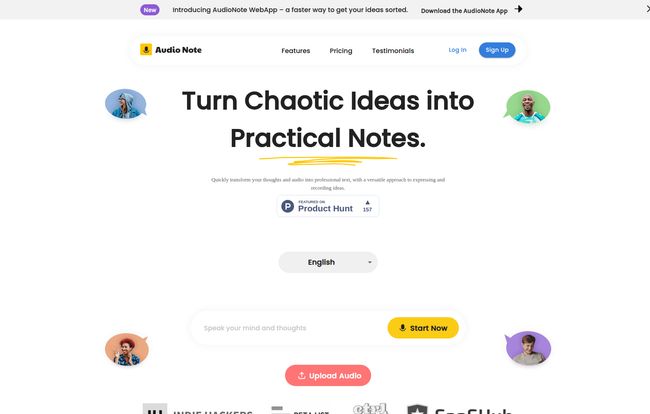
Visit Audio Note
Putting The AI Through Its Paces
Okay, the concept is cool. But does it work in the real world, with my mumbles and weird pauses? I decided to give it a proper go.
The Voice-to-Text Transcription
First up, the basic transcription. I've used everything from Google's built-in recorder to more specialized services like Otter.ai. Audio Note’s accuracy is... pretty good. It’s not flawless. If you have a strong accent or there’s a lot of background noise, it can get a bit tripped up. I tried it while my dishwasher was running, and it mistook “content strategy” for “contempt strategy,” which, depending on the day, isn’t entirely wrong. But for clear speech in a relatively quiet environment, it’s more than capable. It’s a solid B+ on the transcription front.
The Real Magic: AI Rewriting
This is the feature that made me raise an eyebrow in interest. It’s the difference between a tool that’s useful and one that’s genuinely transformative for my workflow. I recorded a messy voice note: “Okay so blog post idea... about that new AI tool... Audio Note... talk about how it helps chaotic people like me... maybe mention the pricing, the free versus pro... and also the community feedback looks good... oh and I should make a section about its flaws too, to be balanced.”
I then asked the AI to turn this into a “Todo List.” Here’s what it spat out:
- Write a blog post about the AI tool, Audio Note.
- Focus on how it helps disorganized individuals.
- Include a section on pricing (Free vs. Pro).
- Incorporate positive community feedback.
- Add a balanced section discussing the tool's flaws.
Not bad. Not bad at all. It took my verbal spaghetti and handed me a clean, actionable outline. I then asked it to draft a Tweet. It gave me something like: “Struggling to organize your brilliant ideas? 🧠 I've been testing Audio Note, an AI tool that turns voice notes into structured content. Could be a game-changer for chaotic creatives! #Productivity #AI”. It gets the gist, and it’s a fantastic starting point that saves me those initial 5-10 minutes of staring at a blank screen, which as any content creator knows, is half the battle.
Who Is This Tool Actually For?
I don't think this is for everyone. If you’re a meticulous planner who already has a perfectly organized system, you might not see the appeal. But if you fall into one of these camps, I think you’ll get it:
- Content Creators & Marketers: This is a no-brainer. Brainstorming on the go and instantly turning those ideas into drafts for tweets, posts, or emails is huge.
- Busy Professionals & Executives: Need to quickly draft a follow-up email after a meeting? Just speak your summary and let the AI formalize it. It's faster than typing on a tiny phone keyboard.
- Students: Imagine recording a professor's key points and instantly turning them into a study guide or summary notes. Game-changer.
- Anyone with a Brain That Moves a Million Miles an Hour: If you're like me and your thoughts are often a chaotic whirlwind, this tool acts as a net to catch them and a translator to make them make sense to everyone else.
Let's Talk Money: The Pricing Breakdown
So, what's the damage? The pricing structure is refreshingly simple, which I appreciate. There’s no complex tier system with confusing feature gates.
There's a Free Plan, which is great for trying it out. You get unlimited text notes, the AI rewrite feature, but your voice notes are capped at 1 minute long. It's a generous trial, really. It lets you test the core functionality without reaching for your wallet.
Then there’s the Audio Note Pro plan, which comes in at $149.99 per year. This is where the training wheels come off. Your voice note limit jumps from 1 minute to 30 minutes, and you get unimited voice notes. For anyone serious about using this for meeting notes, interviews, or extensive brainstorming, the Pro plan is pretty much non-negotiable. Is it worth it? If it saves you even 2-3 hours of tedious admin and writing work a month, the ROI is definitely there.
The Not-So-Perfect Bits
No tool is perfect, and it’s important to be honest about the shortcomings. My biggest gripe is one I already mentioned: the transcription can still be a bit iffy with accents and background noise. It's not a deal-breaker, but you can't treat it as a 100% accurate court stenographer. You'll need to give your notes a quick proofread.
Secondly, while the AI rewriting is brilliant, it sometimes needs a human touch to sound, well, human. The generated content is a fantastic first draft, but you’ll want to inject your own voice and style before hitting publish. Think of it as a talented intern—it does 80% of the work, but you need to do the final polish.
What the Community Is Saying
It seems I'm not alone in my positive assessment. Browsing through their site, I saw comments that echoed my own experience. A user named Beth Cubes mentioned, "I'm great at generating new ideas and turning them into incredibly jumbled and incredibly useless voice notes." I felt that in my soul. She goes on to say the app makes them "instantly organized and incredibly useful." That's the whole value proposition right there. Another user, Martin Schaufelberger, pointed out its usefulness for non-native English speakers to check their grammar and writing, which is a use case I hadn't even considered.
Frequently Asked Questions about Audio Note
How does Audio Note's AI actually work?
It uses a combination of advanced speech-to-text technology for the transcription and a large language model (similar to what powers tools like ChatGPT) to understand the context of your note and rewrite it based on your chosen format (email, tweet, etc.).
Is this better than my phone's built-in voice recorder?
For pure recording, they're similar. But your phone's recorder just gives you an audio file. Audio Note gives you a searchable text transcript and the ability to instantly repurpose that text. It's a different league.
What languages does it support?
The website boasts support for over 30 languages, which is quite impressive and makes it accessible for a global user base.
Can I use Audio Note on different devices?
Yes! They have an app you can download, but also a new AudioNote WebApp, which means you can access and create notes from your computer's browser, which is a big plus for workflow flexibility.
Is the Pro plan worth it for a student?
At $150 a year, it might be a stretch on a student budget. I’d suggest starting with the free plan to see how much you use it for lecture notes and brainstorming. If you find the 1-minute limit is consistently holding you back, then it could be a worthwhile investment in your studies.
My Final Verdict
So, is Audio Note just another flash in the pan? In my opinion, no. It's a genuinely clever tool that solves a real problem. It bridges the gap between the chaotic, fleeting nature of spoken ideas and the need for structured, actionable text. It’s not going to organize your entire life for you, but it will absolutely capture and refine your best ideas, saving you time and mental energy in the process.
It has its quirks, for sure. But the core functionality is solid, and the AI-powered rewriting feels like a little piece of the future. For the chaotic-brained creatives, the fast-moving professionals, and the content creators out there, Audio Note is one of the few productivity apps I’ve tried recently that I’ll actually keep using. It has earned its spot on my home screen.
Reference and Sources
- Audio Note Official Website
- Audio Note Pricing Information
- Harvard Business Review article on cognitive load and focus
